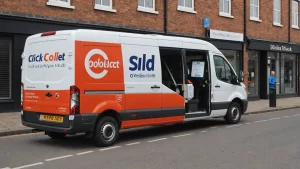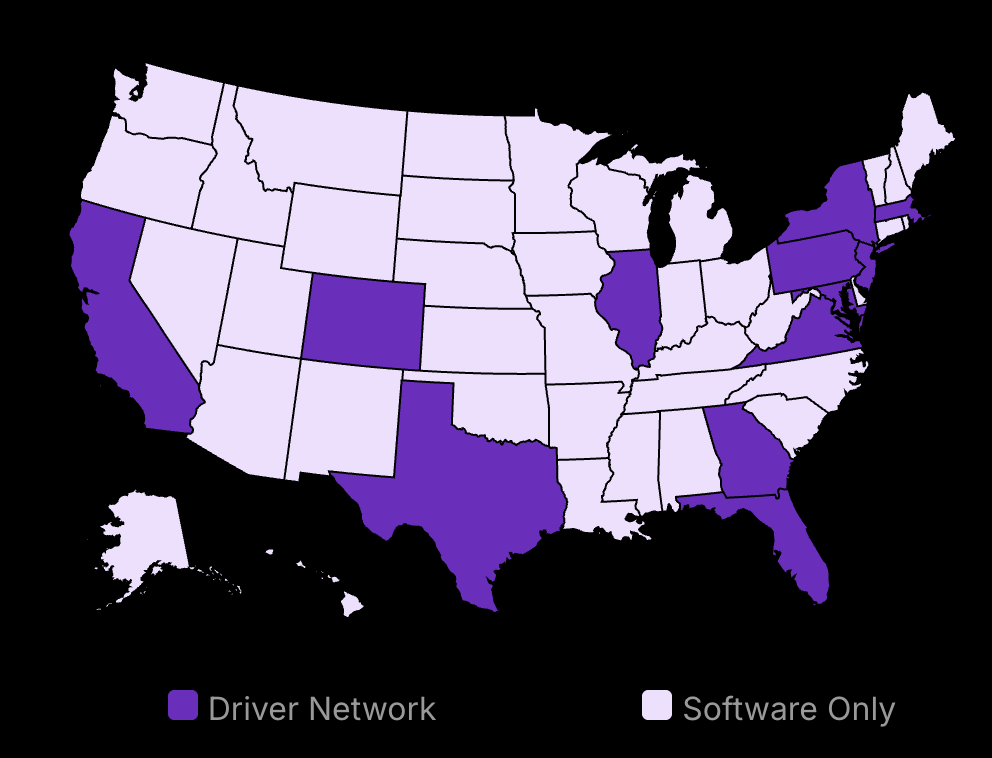Small business owners often miss the biggest growth opportunity right in front of them: other businesses, including their target audience, and potentially new customers, highlighting the importance of business-to-business relationships. While most local shops focus solely on attracting individual customers, the real power lies in business-to-business relationships that can transform your revenue stream overnight.
I’ve watched a local bakery owner struggle for years to make ends meet with walk-in traffic alone, until she started attracting business clients for various business purposes. Then she started supplying three restaurants with daily bread deliveries. Her revenue doubled in three months with fewer working hours.
This isn’t rare. It’s strategic.
For local shops, B2B deals create stability that consumer markets simply cannot match. Think predictable orders, consistent revenue, and relationships that weather economic storms through effective marketing strategies. Yet most small business owners avoid these business-to-business partnerships and the b2b model because they seem too complex or formal.
The truth? B2B deals for local shops follow simple patterns that anyone can learn.
A coffee shop in Portland increased profits by 35% after partnering with five local offices for weekly deliveries. A boutique clothing store in Austin now supplies uniforms and other products or services to three local hotels, creating a steady income base that supports their creative retail offerings.
What separates successful local businesses from struggling ones isn’t just location or products—it’s understanding how to build strategic relationships with other businesses.
In this breakdown, we’ll walk through exactly how local shops can identify, approach, negotiate, and maintain profitable B2B partnerships. No complex corporate strategies—just practical steps that work for real local businesses.
Ready to transform your local shop from surviving to thriving? Let’s start with what B2B means for businesses like yours.
The Business-to-Business Market Size
The Business-to-Business market size has grown rapidly from $13.29 trillion in 2019 to $32.11 trillion in 2025, driven by industries like advanced manufacturing, energy, healthcare, and professional services.

Boost customer satisfaction with just a few clicks
Most-Loved Features:
- On-demand drivers
- Real-time GPS tracking
- Delivery confirmation photos
- Over 50% of customers report a smoother delivery experience
What is Business-to-Business (B2B) for Local Shops?
B2B creates essential supply relationships that keep local shops stocked and running
Local shops use B2B partnerships to access better pricing and build reliable supply chains.
These business relationships help local shops compete with larger retailers.
Business-to-business (B2B) transactions form the backbone of how local shops operate. At its core, B2B means one business selling products or services directly to another business rather than to individual customers. For local shops, this typically involves the relationships they build with suppliers, distributors, and other businesses to get the inventory and services they need to run their operations.
Local shop owners engage in B2B relationships daily, often without labeling them as such. When a bakery orders flour from a local mill, a boutique purchases clothing from wholesalers, or a hardware store stocks tools from manufacturers—these are all B2B transactions. These relationships differ from business-to-consumer (B2C) sales, where shops sell directly to end customers.
The B2B market, including b2b e-commerce. For local shops specifically, B2B relationships provide the foundation for everything they offer to their communities, including raw materials.
B2B e-Commerce Market
The global Business-to-Business eCommerce market is valued at $32.11 trillion in 2025 and is projected to grow at a CAGR of 14.5%, reaching $36.16 trillion by 2026
Examples of Business-to-Business in Local Shops
Local business-to-business relationships create some of the most visible and valuable connections in any community. These partnerships not only keep shops stocked but often become part of the shop’s brand identity and value proposition.
Coffee shops provide a perfect example of local business-to-business relationships. Many independent coffee shops partner with local roasteries to source their beans. This relationship benefits both businesses: the coffee shop gets fresh, high-quality beans with reliable delivery, while the roastery gains a consistent buyer for their product. These partnerships often feature prominently in marketing, with coffee shops proudly displaying which local roaster supplies their beans, creating a story that resonates with customers who value local connections.
Clothing boutiques represent another common business-to-business scenario. Small clothing stores frequently work with local garment makers, jewelry designers, and accessory crafters to stock unique items that set them apart from chain retailers. These relationships allow boutique owners to offer exclusive merchandise while supporting local artisans. The B2B relationship often includes special ordering, custom designs, and collaborative marketing efforts. For example, a boutique might host a meet-the-maker event featuring a local jewelry designer, benefiting both businesses through increased visibility and sales.
Food markets demonstrate perhaps the most extensive network of local B2B relationships. A neighborhood grocery might source produce from nearby farms, bread from local bakeries, honey from regional beekeepers, and specialty items from small-batch producers. These B2B relationships create a web of local commerce that strengthens the entire business community while offering customers fresher products with lower transportation costs and environmental impact.
Types of Business-to-Business Deals for Local Shops
Local shops engage in several types of B2B arrangements, each serving different business needs and situations. Understanding these different structures helps shop owners select the right approach for their specific requirements.
The most common B2B deals for local shops fall into several categories. Purchasing agreements establish the terms for regular orders between two companies for inventory or supplies. Vendor contracts formalize longer-term relationships with specific suppliers. Consignment arrangements allow shops to stock items without an upfront purchase. Distribution agreements give shops exclusive rights to sell certain products in their area. Service contracts cover essential business functions like accounting, cleaning, or technology support.
Each type of deal offers different advantages. Purchasing agreements provide predictability in costs and delivery schedules. Vendor contracts secure reliable supply chains. Consignment reduces financial risk when testing new products. Distribution agreements offer a competitive advantage through exclusive products. Service contracts ensure critical business functions operate smoothly without requiring in-house expertise.
The right mix of B2B deals depends on a shop’s specific business model, product category, and growth stage. New shops might rely heavily on consignment to build inventory with limited capital, while established businesses might focus on securing favorable long-term vendor contracts to support their proven sales patterns.
Purchasing Agreements
Purchasing agreements serve as the formal backbone of most B2B relationships for local shops. These contracts define the essential terms of the business relationship, providing clarity and protection for both the shop and its suppliers.
A standard purchasing agreement covers several critical elements. It specifies product details including quantities, quality standards, and specifications to ensure the shop receives exactly what it needs. Pricing terms outline not just the cost per unit but also volume discounts, payment schedules, and handling of price changes. Delivery terms detail timing, location, and responsibility for shipping costs. Duration clauses establish how long the agreement remains valid and under what conditions it can be renewed or terminated. Quality control provisions set standards and processes for handling defective or damaged goods.
For local shops, well-structured purchasing agreements provide numerous benefits. They create predictability in inventory planning and cash flow management. They protect against unexpected price increases that could squeeze profit margins. They establish clear expectations regarding product quality and delivery timing. Perhaps most importantly, they formalize the relationship in a way that reduces misunderstandings and provides recourse if problems arise.
A coffee shop’s purchasing agreement with a local roaster illustrates these principles in action. The agreement might specify weekly delivery of 30 pounds of medium-roast beans at $14 per pound, influencing purchasing decisions with payment due within 15 days. It could include quality standards requiring beans roasted within 48 hours of delivery and a procedure for returning any shipment that doesn’t meet standards. The contract might last six months with automatic renewal unless either party provides 30 days’ notice to terminate.
Vendor Contracts
Vendor contracts expand beyond basic purchasing agreements to establish comprehensive, long-term relationships between local shops and their suppliers, potentially incorporating enterprise software. These more detailed agreements address not just what products will be purchased but also how the entire business relationship will function.
A thorough vendor contract typically includes several components beyond those found in basic purchasing agreements. Exclusivity clauses may restrict the vendor from selling to competing shops in the same area. Marketing support provisions outline how vendors will help promote their products within the shop. Training requirements ensure shop staff understand how to properly sell, use, or maintain the vendor’s products. Inventory management terms might include vendor-managed inventory systems, where the supplier monitors stock levels and automatically replenishes products. Performance metrics establish standards for evaluating the relationship, such as on-time delivery percentages or sales targets.
For local shops, strong vendor contracts deliver significant advantages. They secure consistent supply chains, reducing uncertainty about product availability. They often include preferential pricing not available through one-time purchases. They can provide marketing support, such as point-of-sale materials or co-branded advertising. They may include staff training that improves product knowledge and sales effectiveness. They can also create barriers to entry for competitors by securing exclusive products or favorable terms with key suppliers.
A hardware store’s relationship with a power tool manufacturer demonstrates these benefits. Their vendor contract might secure exclusive rights to sell the manufacturer’s professional-grade tools within a 15-mile radius, include quarterly staff training on new products, establish a 20% discount on wholesale pricing, provide branded display materials, and set up an automated reordering system based on sales data. This comprehensive relationship becomes a competitive advantage that casual or one-time purchasing agreements cannot match.
In the B2B sales process, these vendor contracts often develop through a series of steps: prospecting potential partners, qualifying their fit, addressing their needs, overcoming objections, securing the agreement, and maintaining the relationship through consistent performance. For local shops, mastering this b2b model means not just having products to sell but building a sustainable business with reliable supply chains and strong industry partnerships.
How Does Business-to-Business Sales Work?
The B2B sales process for local shops differs significantly from selling to individual consumers. While B2C sales often complete in minutes, B2B sales typically involve multiple meetings, several decision-makers, and a longer sales cycle, sometimes stretching weeks or months for significant agreements.
B2B sales work through a structured process that begins with identifying potential business partners who need your products or services. For local shops selling to other businesses, this might include restaurants needing produce, offices requiring coffee supplies, or event planners seeking gift baskets. The next step involves reaching out to these prospects through calls, emails, or in-person visits to schedule initial meetings.
During these meetings, successful B2B sellers focus on understanding the other business’s specific needs during the decision-making process. Rather than immediately pushing products. A local bakery selling to cafes might discuss not just bread prices but delivery schedules, storage requirements, and how freshly-baked goods could increase customer satisfaction. After understanding these needs, sellers present tailored solutions and address any concerns or objections.
The final stages involve negotiation, agreement on terms, and signing contracts that formalize the business relationship. Unlike one-time consumer purchases, B2B sales typically establish ongoing relationships with regular orders and deliveries, creating stable revenue streams for both parties.
B2B sales representatives can earn substantial incomes, with many earning between $60,000 and $100,000 annually, while top performers in specialized industries, such as computer manufacturers, often exceed $200,000 with commission structures. For local shop owners handling their own B2B sales, these skills directly impact their business’s growth potential and long-term stability.
What Is the Best B2B Business Partnership Strategy for Local Shops?
The most effective B2B strategies focus on complementary business relationships that create mutual value.
Local shops thrive when they form partnerships that share resources, customers, and marketing efforts.
Technology-enabled collaborations can significantly extend reach while maintaining authenticity.
Creating Complementary Business Relationships
The foundation of successful B2B partnerships for local shops begins with identifying complementary businesses. These are enterprises that don’t compete directly but serve similar customer bases or have aligned values. A bookstore partnering with a local coffee shop creates a natural synergy – readers enjoy coffee while browsing, and coffee drinkers discover books they might purchase.
What makes these relationships work is their ability to fill gaps in each other’s offerings without cannibalizing sales between the two businesses. According to research from the Small Business Development Center, local shops that form complementary partnerships see an average revenue increase of 22% within the first year. This occurs because each business brings its loyal customer base to the partnership, essentially cross-pollinating their business clientele.
The key to finding these partners is to map your customer journey beyond your shop. Where do your potential customers go before visiting you? Where do they head afterward? These connection points represent potential partnership opportunities. For example, a specialty food store might partner with a kitchenware shop, as customers buying gourmet ingredients often need quality cookware to prepare them. The relationship works because each business strengthens the value proposition of the other.
Resource Sharing Strategies
Resource sharing represents one of the most practical B2B partnership approaches for local shops with limited budgets. This strategy goes beyond simple cross-promotion to the actual sharing of physical assets, technology, staff expertise, or distribution channels.
A notable example is shared delivery services. Several independent retailers in Portland, Oregon, created a shared delivery network that reduced individual delivery costs by 47% while expanding their delivery range. By pooling delivery resources, each shop maintained brand independence while gaining operational efficiencies previously available only to larger retailers.
Technology sharing offers another resource-pooling opportunity. Point-of-sale systems, customer relationship management software, and inventory management tools often come with hefty subscription fees. Local shops can negotiate group rates or share access to these tools. In Chicago, a group of twelve neighborhood retailers shares a subscription to an advanced inventory management system, reducing per-shop costs by 65% while giving each access to enterprise-level technology.
Space sharing has also proven effective for seasonal businesses. A Halloween specialty shop might use retail space that sits vacant during summer months, while a gardening supply store might lease its unused storage space to other businesses during winter. This arrangement allows both parties to optimize their biggest expenses – rent and utilities.
Cooperative Marketing Strategies and Initiatives
Cooperative marketing represents perhaps the most visible form of business-to-business partnership for local shops. In 2025, this strategy has evolved beyond traditional joint advertising to include sophisticated digital campaigns that would be prohibitively expensive for individual shops.
Influencer Marketing in Business-to-Business
Influencer marketing is trusted by 71% of B2B buyers more than traditional brand advertising
The most successful cooperative marketing approaches include:
Neighborhood shopping guides that highlight complementary businesses
Shared loyalty programs that reward customers for shopping at multiple local businesses
Joint events that bring together multiple shop owners and their customer bases
Collective social media campaigns that cross-promote products and services
A practical starting point is the creation of a shared content calendar among partner businesses. This allows for coordinated messaging across social platforms without requiring significant financial investment. For example, a restaurant, brewery, and dessert shop might coordinate posts about a perfect Friday night out that includes all three businesses.
Video Marketing in Business-to-Business Marketing
Video marketing is highly effective, with 91% of B2B marketers reporting significant boosts in brand awareness and engagement from video content
Building Local Supply Chains
Perhaps the most transformative B2B partnership strategy involves building local supply chains. This approach moves beyond marketing cooperation to create self-sustaining business ecosystems within communities, such as through cloud services.
For local retailers, sourcing products from local producers creates a powerful narrative that resonates with today’s conscious consumers. A kitchenware store that sells locally made pottery and utensils isn’t just offering unique merchandise – it’s telling a community story that chains cannot match.
The financial benefits extend beyond customer perception. Local supply chains reduce transportation costs, minimize inventory disruptions, and allow for more flexible ordering volumes, especially when sourcing services online. Small retailers can order in quantities appropriate for their size rather than meeting minimum order requirements from distant wholesalers.
Building these supply chains requires active networking within your business community. Local manufacturing associations, chambers of commerce, and industry-specific meetups provide opportunities to discover potential suppliers. Many communities now have dedicated economic development staff who can help connect local retailers with local producers.
Leveraging Technology for Local Partnerships with Business Models
Digital tools have dramatically expanded partnership possibilities for local shops. Nearly 50% of B2B ad spending in 2025 is allocated to mobile platforms, social media strategies, and email marketing campaigns. , showing the importance of digital channels for business relationships.
Digital Channels in the B2B Industry
By 2025, 80% of business-to-business sales interactions are expected to occur through digital channels, reflecting buyers’ preference for self-service and online transactions over traditional face-to-face meetings
Local shops can leverage this digital shift through:
Shared e-commerce platforms that feature multiple local businesses under one digital roof
Joint digital gift card programs that work across multiple shops
Collective data gathering that helps all partners understand customer behavior
Local delivery apps that connect multiple businesses to the same customer base
The “Main Street Marketplace” model has proven particularly effective. This approach involves creating a single e-commerce platform featuring products from multiple local businesses, with unified checkout and delivery options. Customers enjoy the convenience of online shopping while still supporting local businesses.
Customer data sharing represents another technology-enabled partnership opportunity. With proper privacy safeguards, local shops can pool customer insights to better understand shopping patterns. This might reveal, for example, that customers who buy specialty cheese typically purchase wine within 48 hours – valuable information for both the cheese shop and wine store in planning promotions.
For local shops beginning to explore technology-enabled partnerships, start with simple integration points before building more complex systems. Shared hashtags and cross-tagging on social media cost nothing but can drive significant cross-traffic between partner businesses.
Creating Partner Selection Criteria
Not all potential partners will deliver equal value. Successful local shops develop clear criteria for evaluating partnership opportunities. These typically include:
Alignment of customer demographics and values
Complementary (not competing) product or service offerings
Compatible business practices and ethics
Similar quality standards
Geographical proximity, when relevant
Financial stability and business longevity
The most overlooked factor in partner selection is operational compatibility. Even businesses with perfectly aligned offerings may struggle to partner if their operational approaches differ dramatically. A shop that prides itself on meticulous planning may find it challenging to work with a more improvisational partner, regardless of how well their products complement each other.
When evaluating potential partners, arrange informal meetings before discussing specific partnership details. These conversations reveal organizational culture and working styles that formal proposals might not capture, especially when dealing with multiple stakeholders. Many successful partnerships begin with simple coffee meetings between owners to explore shared challenges and opportunities.
For shops seeking structured guidance on partner selection, the SCORE Association offers free partnership evaluation templates that help small businesses assess potential collaboration opportunities systematically.
Measuring Partnership Success
Like any business strategy, B2B partnerships require clear success metrics. The most effective local shop partnerships establish measurement frameworks before launching initiatives.
Beyond simple revenue tracking, effective partnership metrics include:
Customer overlap percentage (customers who shop at multiple partner businesses)
Referral traffic between physical locations
Cost savings from shared resources
Social media engagement on joint content
Customer retention improvements
Time investment, especially in content marketing efforts, should also be measured. While partnerships offer many benefits, they require coordination, communication, and compromise. Tracking the hours devoted to partnership activities helps determine their true ROI.
Many successful partnerships establish quarterly review meetings where all parties examine these metrics and discuss opportunities for improvement. This regular cadence prevents partnerships from drifting into irrelevance or continuing past their natural conclusion.
The most successful B2B partnership strategy for local shops combines elements from each approach described above, tailored to specific business needs and community context. By focusing on creating mutual value rather than one-sided advantages, local shops can build sustainable partnerships that strengthen the entire business ecosystem for b2b companies.
B2B Companies
Building successful B2B deals isn’t just about transactions—it’s about creating relationships that help your local shop thrive. By following the steps we’ve outlined, from finding reliable suppliers to negotiating terms that work for both parties through company websites, you’re setting your business up for sustainable growth.
Local B2B partnerships do more than fill your shelves; they strengthen your community’s economic foundation. When you source from nearby vendors, you keep money circulating locally and build a network of businesses that support each other through challenges.
The most successful local shops understand that B2B relationships aren’t just about getting the lowest price—they’re about creating stable, trustworthy supply chains that can weather market changes. By focusing on clear agreements, regular communication, and mutual benefits, you build partnerships that stand the test of time.
Take what you’ve learned about B2B deals and put it into action this week. Reach out to one local supplier you’ve been considering to purchase products. Start the conversation that could become your next valuable business relationship. Your shop—and your community—will be better for it.
B2B Companies in The U.S.
65% of B2B companies in the U.S. offer eCommerce capabilities, and the U.S. B2B eCommerce market is projected to generate over $3 trillion by 2027



























